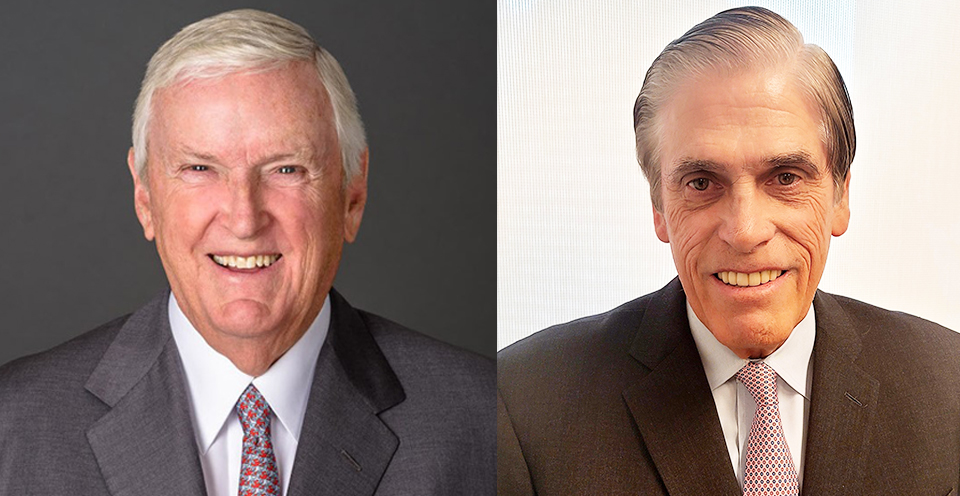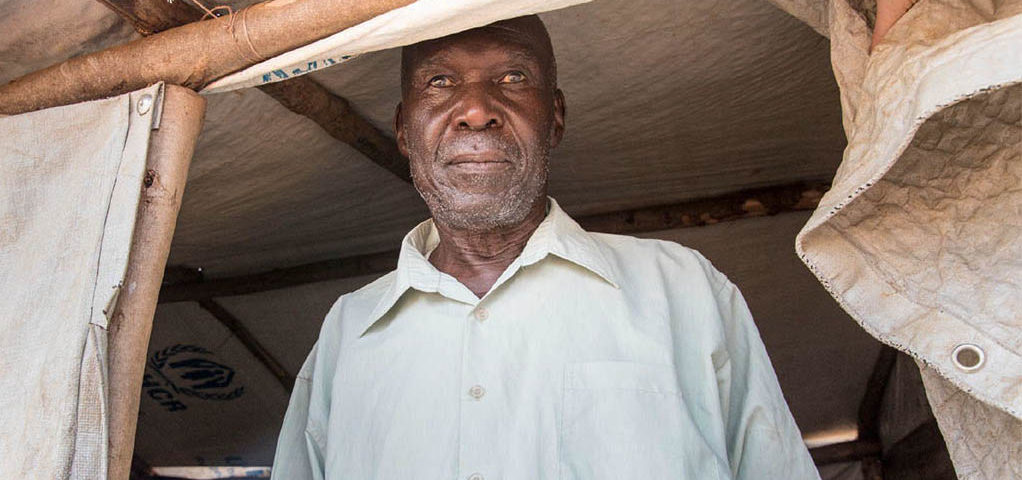
David Hutchinson’s Nonprofit Leadership Strategies
April 3, 2022
Jack Connors & Robert Keefe Named Foundation Trustees
April 3, 2022Mercy Corps & Coinbase Uses Technology to Support 35,000 Ugandan Refugees

Mercy Corps & Coinbase Uses Technology to Support 35,000 Ugandan Refugees overviews a new pilot program that uses technology to change people’s lives.
One billion people around the world have no proof of identity. Many of these one billion people are refugees, and without official identity documents it is incredibly difficult to register for basic – yet essential – services, like bank accounts, utilities, or cash transfers provided by humanitarian organizations. Cash transfers enable displaced people to cover the costs of food, accommodation, medicine, school fees, and more, supporting them to begin rebuilding their lives while offering the flexibility and freedom in how to spend their money.
That is why we’re excited to announce a new partnership between Coinbase Giving (VISIT HERE) and Mercy Corps (VISIT HERE) to advance financial inclusion for refugees and refugee host communities in Uganda – the largest refugee-hosting country in Africa. Together, we will run two pilots to responsibly test and scale innovative blockchain-based solutions to provide digital ID, which will then enable crypto transfers to support approximately 35,000 people. Taking a human centered design approach and leveraging Mercy Corps’ decades of experience delivering cash programming in vulnerable communities, we will work in partnership with participants with respect, agency and trust.
Mercy Corps & Coinbase Transfers Crypto to 35,000 Ugandan Refugees
“Coinbase is guided by its mission to increase economic freedom around the world. In partnership with Mercy Corps, Coinbase Giving is embodying our mission by bringing blockchain-based digital identity solutions to refugee communities in Uganda. This project helps build the tools and infrastructure needed to improve the financial freedom for historically underserved individuals.” ~ Dominique Baillet – Director, Coinbase
Pilot 1 – Giving Pilot – Digital ID powered by blockchain
Without recognized identity documents, individuals are unable to access vital financial services like credit and insurance, or even employment opportunities, limiting income and secure ways to store capital. For refugees, this often means exclusion from aid distribution, as humanitarian organizations face complexities in managing programs for individuals without authorized ID.
Through this pilot, a blockchain-powered ledger will create a reliable and secure database that enables participants to be registered via an agent and issued a verifiable digital ID. Participants will then be provided with a unique, immutable identifier that serves as their digital ID to receive aid disbursements. Delivering a digital ID solution, secured using cryptography, will give each participant a unique identity that is authenticated and encrypted. Here, blockchain will allow for more secure management and storage of digital IDs by providing unified, interoperable, and tamper-proof infrastructure, and as the ledger is publicly accessible, each participant will be able to use their digital credentials in many locations, helping them to integrate into the wider community.
Example user flow: A pilot participant creates a digital identity with the support of a Mercy Corps team member. This identity is encrypted with a password and recorded on the ledger. The participant will be able to identify themselves when receiving aid distributions and government services through self-authentication facilitated by USSD, as well as begin accessing a range of other support.
We will examine what the programmatic differences are (such as costs, enablers, barriers, etc.) in running a digital ID program compared to traditional approaches, the types of training most effective in helping participants use their digital ID, how a digital ID program should interface with policymakers to ensure the validity of digital IDs, and what additional services need to be provided alongside a digital ID to ensure its utilization.
Expected benefits to the participants:
- Verifiable source of identification that can be used to access aid disbursements, governmental services, formal financial services, and integrate into society at large
- Digital proof of identity where credentials can be recorded, such as education, certifications, etc.
This pilot would serve as the foundational infrastructure for refugees to prove their identity, facilitating their digital, financial and economic inclusion.
Pilot 2 – Crypto transfers to a blockchain-built mobile wallet
Cash transfers are an integral element of support provided to refugees, enabling displaced people to access essential products and services with agency and dignity, while stimulating local market actors like small businesses.
Leveraging the digital identities created in the first pilot, each participant will establish a digital wallet that can be used to receive, store and spend funds. This wallet will serve as a foundational component to help refugees build their financial profile and literacy of new products and services. Crypto-based transfers will be distributed to mobile wallets, and all transactions will be recorded on an immutable blockchain, which will increase transparency and security.
A specific benefit to using blockchain in this case would be traceability. Recording all transactions on an interoperable ledger would increase transparency and accountability for aid organizations and donors, ensuring that funding is used according to program design.
Example user flow: Participants are registered for recurring crypto transfers as per existing program guidelines. Instead of receiving fiat money, a prepaid card, voucher or other form of payment, the participants receive a top-up deposited directly to their crypto wallet. The funds can be redeemed for fiat money at select cash-out points, or used directly at participating stores within the local community – benefiting refugee and host community businesses.
Participants can also save some funds in their interest accruing mobile wallet, giving them access to extended financial services. Another potential benefit would be to keep the funds in a foreign-denominated stablecoin, which would offer an inflationary hedge in countries with volatile currencies.
We will examine what the programmatic differences are in running a crypto transfer program compared to traditional approaches, how the funds are being used by participants, what additional use cases are valued by customers, and what off-ramps are most useful for participants.
Expected benefits to participants:
- Reduced potential for diversion, corruption and fraud
- Increased personal safety for employees and recipients
- Greater transparency on funding flows for donors and aid organizations
This pilot could revolutionize cash transfer programs for aid organizations globally, shifting from traditional payment modalities to crypto.
Both pilots will lay a critical foundation for both refugee and host communities to access additional financial and other services, and further their journey toward financial resilience.
Our ambition is for these pilots to prove the concept so that Mercy Corps and our partners can scale up the approach across Uganda, bringing major innovation and learning to the humanitarian aid and development sector.
As the regulatory landscape evolves in Uganda, we foresee opportunities to pilot additional solutions such as DeFi savings, lending and insurance products, providing refugees and host communities access to low borrowing rates and high yield products. Program participants will be able to deposit crypto as collateral for loans, leveraging our crypto distribution programming to increase access to financial services.
Given the broad range of use cases for blockchain to support un-/underbanked and displaced communities, these solutions represent major potential for catalytic change.
About Mercy Corps
Mercy Corps is a global team of 5,400 humanitarians working to create a world where everyone can prosper. In more than 40 countries affected by crisis, disaster, poverty and climate change we work alongside communities, local governments, forward-thinking corporations and social entrepreneurs to meet urgent needs and develop long-term solutions to make lasting change possible. In 2021, Mercy Corps reached over 50 million people; our cash voucher programs reached five million people in 23 countries.
About Coinbase Giving
Coinbase Giving is the operational embodiment of Coinbase’s commitment to Pledge 1%: our promise to dedicate 1% of Coinbase profits, equity, and employee time toward charitable activities that leverage the power of crypto to increase economic freedom in the world.
Georgia Suter
Associate Director
(631) 603 – 7795
[email protected]
Mercy Corps & Coinbase Transfers Crypto to 35,000 Ugandan Refugees was first posted 501c3.Buzz
For more articles like Mercy Corps & Coinbase Transfers Crypto to 35,000 Ugandan Refugees VISIT HERE
The post Mercy Corps & Coinbase Transfer Crypto to 35,000 Ugandan Refugees appeared first on 501c3.buzz.
